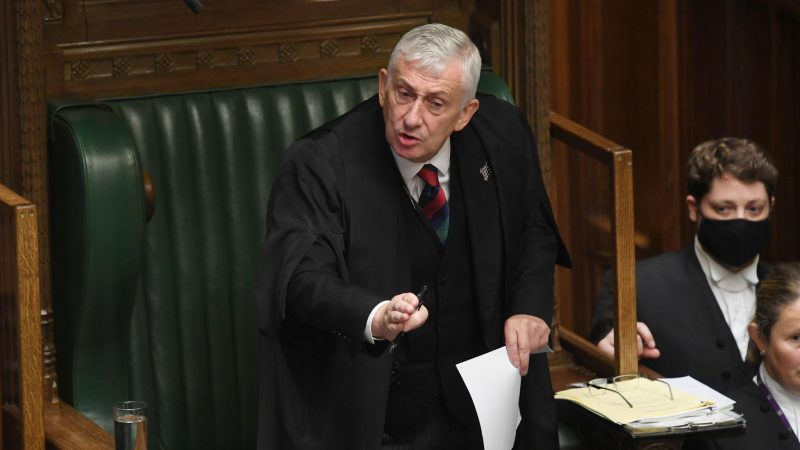What message does the speakers intervention send to victims of Islamophobia?

If we’re to effectively tackle bigotry and racism, then we must also tackle it at the top. What hope can we have for tackling prejudice in wider society, if we cannot tackle it in the current party of government? Politicians, I would like to think all of us agree, should be leading by example.
Those of us have been on the receiving end of Islamophobia know all too well how much of an uphill struggle it can be getting politicians and newspapers to take note of what has become, in far too many quarters, an acceptable form of bigotry.
We also know how it’s been allowed to fester at the top of the Conservative Party, whether it be MPs retweeting the likes of Tommy Robinson or Boris Johnson referring to Muslim women who wear the burka as looking like ‘letterboxes’ and ‘bank robbers’. His comments led to a 375% increase in Islamophobic hate crimes. I also witnessed first hand how his remarks empowered and emboldened far-right thugs like Tommy Robinson and Britain First on the streets of Luton.
If the prime minister and other politicians can use elected office to spread hatred and bigotry towards Muslims, then it is only right that they be held to account for their actions in Parliament and what better way to hold the prime minister to account than during Prime Minister’s Questions?
That’s exactly what Labour MP Imran Hussain tried to do during today’s PMQs, except his question was shut down by Commons speaker Lindsay Hoyle.
Hussain, the MP for Bradford, began his question by raising entirely legitimate concerns about Tory MP Mark Spencer, who has been appointed Commons leader despite being under government investigation for Islamophobia, which he denies. Spencer was at the centre of controversy last month when Nusrat Ghani MP claimed she was told by a party whip that she had lost her job as a minister because her “Muslimness had been raised as an issue” by colleagues.
Spencer identified himself as the whip involved, however he denied Ghani’s claims, which he said were false and “defamatory”.
Hussain then turned to the prime minister’s own record. He said: “We all know that the prime minister himself is no stranger to derogatory remarks about Muslim women. So let me ask the prime minister…”
He was then cut off by the speaker who said: “This is not the appropriate place to be raising this.”
So if Parliament isn’t the place to be holding the prime minister to account for his derogatory remarks about Muslims, then where is? If Prime Minister’s questions, which is watched by people with an interest in politics, where MPs get to hold power to account, isn’t ‘the place’ to highlight the effects of bigotry and racism emanating from the corridoors of power, then where is?
What message does the speakers intervention send to victims of Islamophobia? If anything it’s an insult to them.
I see that the speaker thinks that all he was doing was following Erskine May, those ancient out of date rules that mean politicians cannot call out blatant lying in Parliament or now question the prime minister over Islamophobia. The ‘good chap’ theory of the constitution, which rests upon the belief that the politicians will self-regulate and upon which so many of our outdated rules and procedures rely, clearly isn’t enough to keep a lying charlatan like Boris Johnson in check.
MPs, especially those from marginalised and underrepresent backgrounds also play a crucial role in giving a voice to the communities from which they come, communities so often left behind by our politics. Issues affecting such communities rarely dominate political discussions and PMQs is one of the avenues for MPs to raise those concerns.
By shutting down Hussain’s question, the Speaker has prevented the prime minister being held to account for his comments that caused so much harm to communities up and down the country.
Basit Mahmood is editor of Left Foot Forward
Left Foot Forward doesn't have the backing of big business or billionaires. We rely on the kind and generous support of ordinary people like you.
You can support hard-hitting journalism that holds the right to account, provides a forum for debate among progressives, and covers the stories the rest of the media ignore. Donate today.



